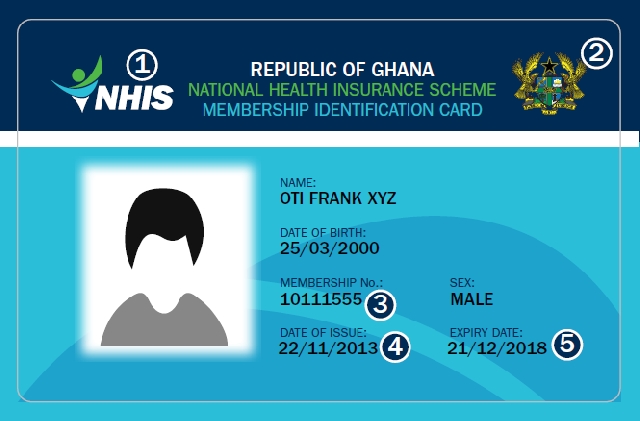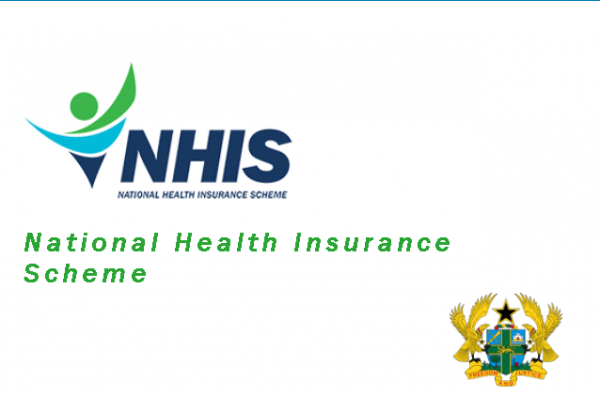Ghana’s National Health Insurance Scheme (NHIS) was introduced to make healthcare more accessible and affordable for all residents. While the system has grown over the years, many people are still unsure of what exactly the NHIS covers—and what it doesn’t.
In this post, we break down the coverage, benefits, and limitations of NHIS in a clear, detailed manner so you can make informed healthcare decisions.
🌟 What is NHIS?
The National Health Insurance Scheme (NHIS) is a social health insurance program in Ghana that aims to provide universal healthcare for all Ghanaians, regardless of income or location. It was launched in 2003 under Act 650 and revised in 2012 under Act 852.
The scheme is managed by the National Health Insurance Authority (NHIA).
🎯 Goals of NHIS
-
To remove financial barriers to healthcare
-
To increase access to essential medical services
-
To reduce health disparities across communities
-
To ensure financial risk protection for all citizens
📋 Who is Covered?
NHIS is open to all residents of Ghana, including:
-
Children under 18 years
-
Pregnant women
-
The elderly (70+)
-
Indigents (very poor individuals)
-
Informal and formal sector workers
-
Persons with disabilities
-
SSNIT contributors and pensioners
👉 Some groups are exempt from paying premiums, such as children, the elderly, and pregnant women.
✅ What Does NHIS Cover?
NHIS offers a comprehensive benefit package that includes over 95% of common diseases in Ghana. Here's a breakdown:
🩺 Outpatient Services
-
General medical consultations
-
Specialist consultations (referral required)
-
Diagnostic tests (e.g., blood tests, x-rays)
-
Minor surgeries (e.g., wound dressing, suturing)
-
Prescribed medications (from the NHIS drug list)
🏥 Inpatient Services
-
Hospital admissions
-
Surgeries (e.g., hernia, appendicitis)
-
Emergency care
-
Medical supplies (e.g., surgical gloves, IV fluids)
👩🍼 Maternity Services
-
Antenatal care
-
Delivery (including caesarean sections)
-
Postnatal care
-
Care for newborns
🦷 Oral Health Services
-
Tooth extraction
-
Gum treatment
-
Oral infection treatment
👁 Eye Care Services
-
Treatment for infections
-
Minor eye surgeries
-
Eye drops and prescribed medications
♿ Physiotherapy
-
For injury recovery and certain chronic conditions
🆘 Emergency Care
-
First aid and stabilization at any accredited facility
👶 Childhood Illnesses
-
Malaria, diarrhea, upper respiratory infections
-
Basic immunizations (under the Expanded Programme on Immunization)
🍼 Family Planning Services (Added Recently)
-
Counseling and select contraceptive services
❌ What Is Not Covered?
Despite its broad coverage, NHIS does not cover every medical service. Exclusions include:
-
Dialysis for chronic kidney disease
-
Cosmetic and plastic surgery
-
Organ transplants
-
Assisted reproductive technologies (e.g., IVF)
-
Advanced cancer treatment (some childhood cancers recently added)
-
Non-prescription drugs
-
Mortuary services
-
Rehabilitation for substance abuse
-
Experimental treatments and unlicensed procedures
🧾 NHIS Drug List
NHIS maintains a list of approved medications, which covers treatments for:
-
Malaria
-
Hypertension
-
Diabetes
-
Asthma
-
Infections (antibiotics, antifungals)
-
Pain management
-
Mental health medications (limited list)
📝 Always check if your prescription falls within the NHIS approved medicines list to avoid unexpected out-of-pocket costs.
📌 Key Benefits of Enrolling
-
Reduced Medical Costs
Most treatments are either fully or partially covered. -
Improved Access
Easier access to hospitals and clinics across Ghana. -
Maternity Care Support
Pregnant women get free maternal services from registration through delivery. -
Equity
Helps low-income individuals receive the same care as others. -
Children’s Health
Children under 18 enjoy free healthcare with at least one enrolled parent.
🏥 Where Can You Use NHIS?
You can access services at any accredited NHIS healthcare facility. This includes:
-
Government hospitals and clinics
-
Faith-based mission hospitals
-
Private hospitals (NHIA-accredited only)
🟢 Look for the NHIS logo or confirmation from the facility before visiting.
💡 Tips for Using NHIS Wisely
-
Always renew your NHIS card annually
-
Know your benefits—ask questions before treatment
-
Keep receipts and prescriptions
-
Use only accredited facilities
-
Carry your NHIS card at all times
📱 NHIS Goes Digital: Mobile Renewal
You can now renew your NHIS card via *mobile phone (shortcode 929#) and even link it to your Ghana Card. This innovation reduces queues and improves efficiency.
📈 NHIS in Numbers
-
Over 12 million active members
-
More than 4,000 accredited facilities
-
Covers 95% of common diseases
-
Thousands of pregnant women enrolled monthly
🚧 Challenges to Be Aware Of
-
Some services require out-of-pocket payments (co-payments)
-
Long waiting times at NHIS centers and facilities
-
Medication stock-outs at some hospitals
-
Limited coverage for chronic and specialized care
🙋♀️ Final Thoughts
The NHIS is a powerful tool in Ghana’s journey toward universal health coverage. By understanding what is covered, where to go, and how to use it wisely, Ghanaians can make the most of this national resource and stay healthier, longer.
💬 Have questions about your NHIS card or coverage? Drop them in the comments below or visit your nearest NHIS district office for support.



Comments (0)
Leave a Comment
No comments yet. Be the first to share your thoughts!